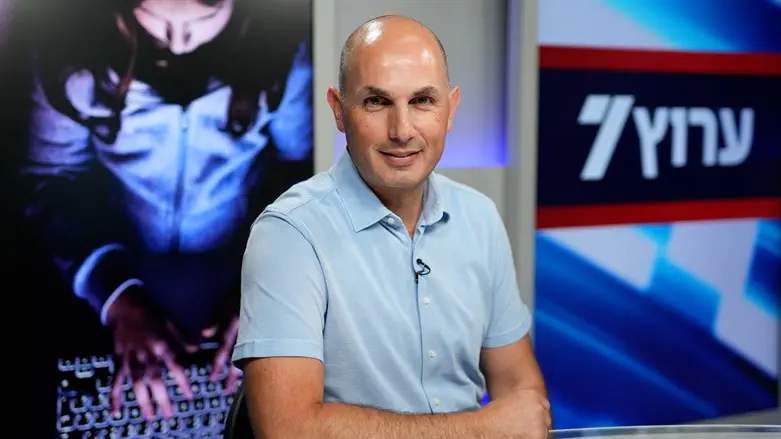
With the end of the holiday period and just before the children go back to school, we hosted Yariv Peer, CEO of Rimon Internet, in the Israel National News studio to discuss the changing challenges over the past couple of years.
"Since the coronavirus, the house has been filled with screens," says Peer. "If there used to be a computer in the living room and one or two more in other rooms, since the coronavirus we see screens all over the house. The network is busy. Customers have changed their consumption habits and the Internet has become part of Israeli children’s regular activities at home."
Peer says that we should remember that, "God created us to be curious and parents should understand that children are children and, therefore, they will always be intrigued. They want to see new things and they will also be ahead of their parents in everything related to understanding technology.” This means that even though a parent checks the child’s browsing history, the child knows how to bypass that.
“The practice of putting the computer in the living room,” Peer says, “is obsolete because every child has his own tablet and computer. In addition, we go to work and the children come home from school while we are still at work,” meaning that there is a “technological babysitter that will be a parental presence while you are not at home."
Peer points out that much of the available filtering software put onto the devices can be bypassed in a few tens of seconds. “At Rimon, we specialize in network protection", he says, and points out that every home has different rules for the desired level of protection and the filtering is adapted to each family independently.
"We know that there are curious children who try to circumvent the system, but in Rimon, the system is built so that it cannot be circumvented.”
Regarding the way Rimon's system works, Peer says that the systems recognize what is being viewed on the screen within a few thousandths of a second. The 'Etrog' brand, for example, which is more suited to ultra-Orthodox society that allows no pictures of women at all, identifies the content of the photographs quickly and accurately, both in stills and in video.
Peer further elaborates on the efforts made by huge companies to keep children and adults in front of the screen, almost like addicts. Today, giant companies employ expert psychologists whose job it is to develop an application that will encourage habits such as sharing photos, etc. because we have become accustomed to actions on the Internet that get likes, a form of recognition the individual has grown to “need”. This borders on addiction, according to Peer, and dealing with addiction requires a special approach. One solution is to reduce surfing hours. The 'Tazmonto' program works like a Shabbat clock where we decide in advance how long we want to be on the Internet.
"We saw that not everyone can comply with this and last summer we launched a product called 'Academic Grenade'. Perhaps it is no longer feasible to tell children that at a certain time they do not have Internet, so we said that at a certain time there will only positive content on the Internet, meaning websites that we found to be legitimate, Torah, Educational studies, etc. It's a kind of alternative to reading a book," he says, and clarifies that reading a book is certainly better.
Referring to the feeling that the war against technology is a losing war, Peer says that people of faith have learned from Mishna Avot 16 that you don't have to complete the job and you are not free to cancel it. Therefore it is indeed an endless war but "our role is to do our part in this war", he says and calls on parents to be partners. "You can't do it alone. Technology is not a substitute for parents but a tool in the hands of parents and our role at Rimon is to look ahead, to see where technology is going and to provide a solution that fits the new technologies” and perhaps stay ahead of them.
Regarding parents who are convinced that their children do not browse problematic websites, Peer says that every year surveys show that ninety percent of the children are exposed to them and ten percent are not telling the truth.
"As a parent myself, I tell parents that I do not experiment on my children. We don't do experiments on children. Symptoms appear at an older age. Let's preserve our children’s innocence as much as possible so that the family's values will also be maintained."
